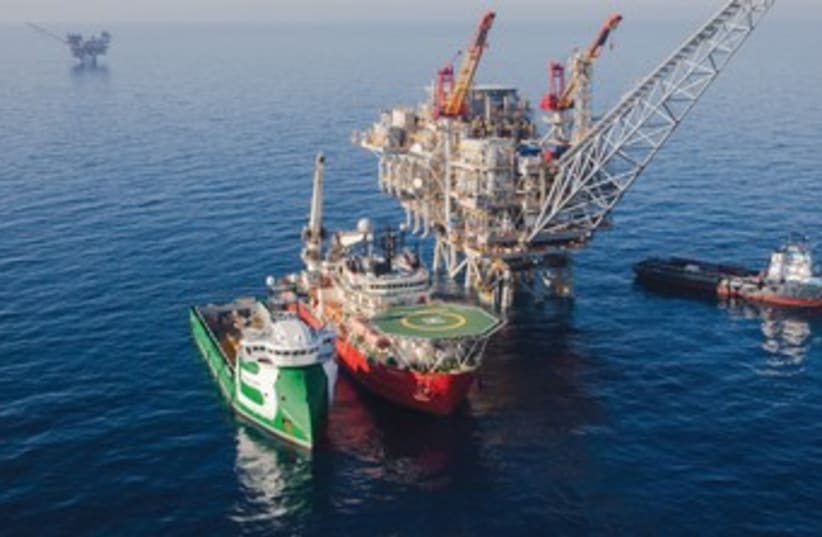The Knesset Science and Technology Committee on Wednesday approved the creation of a sovereign-wealth fund intended to offset monetary repercussions of new gas exports and invest the resources for Israel’s citizens.The export of natural resources, such as natural gas, can lead to an influx of fore ign currency, strengthening the shekel and making exports less attractive on world markets.Sovereign-wealth funds can offset the phenomenon known as Dutch disease, meaning negative consequences arising from large increases in a country’s income, by setting that money aside and strategically investing it over a long period of time. It can also help the government distribute the wealth from natural resources to the population by channeling it to public sectors such as education and infrastructure.
A revision proposed by Yesh Atid MK Boaz Toporovsky added a requirement to the bill so that the Knesset House Committee chairman, and not a specially selected MK, will lead the special committee that will manage the fund’s budget.The original bill would have given the Knesset Finance Committee and the ruling coalition the final say over the budget in cases where the special committee reached a deadlock, something that Justice Ministry officials argued could cause legal trouble.“The profits of the fund will be transferred to society through education, welfare, research and development and not for closing government deficits or defense needs,” Science and Technology Committee chairman Moshe Gafni (United Torah Judaism) said. “This law was correct in that it will not be managed by political considerations of coalition and opposition, and it comes with the aim of serving the next generations.”Toporovsky added a reservation to the bill, so that the special committee may give loans to the Treasury only if 70 Knesset members approve.Although he succeeded in raising the number of necessary MKs from 65, he argued that a super-majority was necessary to keep the fund depoliticized in situations where the ruling coalition has more than 70 seats.Meretz MK Nitzan Horowitz suggested that the law should be a model for other socially beneficial programs.“This law shows that the state can and should ensure that natural resources will be used entirely for public welfare and not be used simply for enriching tycoons,” he said. “We should also use this model for revenues from Dead Sea factories, mineral water, quarries and all the privatized natural resources.”The bill must still pass a second and third reading in the Knesset before becoming law.Science and Technology C'tee approves gas wealth fund
Fund to offset monetary repercussions of new gas exports and invest the resources for Israel's citizens.
